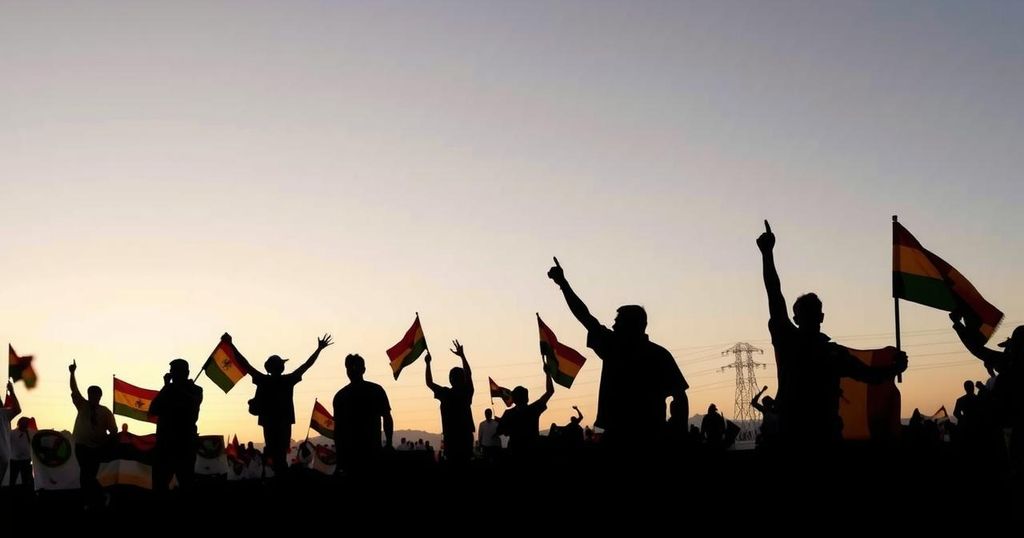Violent Clashes Erupt Amid Protests in Bolivia
Clashes in Bolivia erupted between supporters of former President Evo Morales and counterprotesters aligned with President Luis Arce, resulting in numerous injuries. Morales led a large-scale protest demanding reforms, while tensions rose as counterprotesters confronted them. The ongoing feud between Morales and Arce stems from disagreements over party leadership and economic management, with Morales eyeing a potential presidential run despite legal challenges.
In Bolivia, violent confrontations erupted between participants of a pro-Evo Morales protest and counterprotesters supportive of the current government, leading to numerous injuries. The protests unfolded as Morales mobilized around 10,000 supporters for a “March to save Bolivia” intended to pressure the government in La Paz, in response to grievances such as economic distress and shortages of essential commodities like fuel. Initially, the march commenced without incident; however, tensions escalated when a group of government supporters obstructed access to the highway with tear gas, stones, and firecrackers. The counterprotesters vocally denounced Morales, chanting, “Evo, you traitor, your time has passed.” In retaliation, Morales’ supporters responded aggressively, utilizing slingshots and stones, and shouted, “Evo, Bolivia wants you back!” These developments represent a significant intensification in the ongoing political discord between President Luis Arce and former President Evo Morales, particularly as the nation approaches the 2025 election. The rift between Arce and Morales originated in 2021 due to disputes over party leadership, despite their shared political affiliation. Supporters of Morales attribute the nation’s economic difficulties to Arce’s administration, while Arce accuses Morales of inciting rebellion. The situation has drawn critical responses from high-ranking officials within Arce’s government. Eduardo Del Castillo labeled the protest a “death march,” asserting it was designed to undermine democracy in Bolivia. Morales countered with accusations against the government for deploying undercover police to incite violence during the march, an assertion that the current administration has denied. Despite a ruling that seems to bar him from running, Morales has expressed intentions to seek the presidency in the next electoral cycle.
The political climate in Bolivia has been marked by significant tension and division, particularly between President Luis Arce and former President Evo Morales, who served from 2009 until his resignation in 2019. Both leaders share ideology through their association with the socialist political movement. However, differing visions for the party’s future and policy disagreements have led to a fracture between them. The recent protests can be seen as a reflection of wider social unrest stemming from economic hardships and political dissatisfaction, which many citizens are increasingly vocal about. As the 2025 elections loom, these protests indicate a renewed effort from Morales and his supporters to regain influence, amidst mounting accusations of governmental suppression and socio-economic mismanagement.
The recent violent clashes in Bolivia encapsulate the heightened political tensions between supporters of Evo Morales and the current government led by President Luis Arce. With deep-rooted grievances surrounding economic management and governance, the protests signal a volatile political atmosphere as Morales seeks to reestablish his presence in Bolivian politics. The ongoing strife highlights the challenges facing Bolivian democracy and raises questions about respect for human rights and the political process leading into the upcoming elections.
Original Source: timesofoman.com




Post Comment